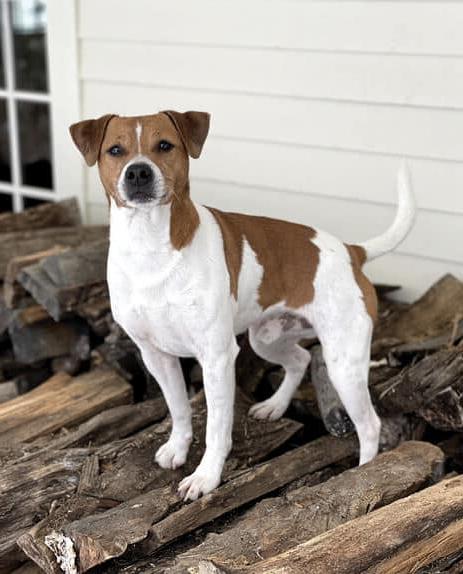- Breed Category: Working, Companion
- Country of Origin: Denmark, Sweden
- Average Height: 32-37 cm (12.5-14.5 inches)
- Average Weight: 7-12 kg (15-26 pounds)
- Average Life Span: 11-14 years
- Grooming Requirements: Low, occasional brushing
- Exercise Requirements: High, needs daily exercise
- Coat Type: Short, smooth
- Coat Color Variations: White with black, brown, or tan
- Shedding Level: Moderate
- Ear Type: Semi-erect
- Tail Type: Natural, sometimes docked
- Temperament: Energetic, friendly, alert
- Intelligence Level: High
- Barking Tendency: Moderate
- Compatibility with Children: Good, playful and gentle
- Compatibility with Other Pets: Generally good, with proper socialisation
- Training Ease: Relatively easy, eager to please
- Common Health Issues: Hip dysplasia, patellar luxation
- Dietary Needs: Balanced diet, avoid overfeeding
- Energy Level: High
- Drooling Tendency: Low
- Sensitivity to Weather: Moderate, needs protection in cold
- Overall Maintenance Level: Low to moderate
- Original Purpose: Farm dog, rat catcher
- Year of Recognition by Kennel Clubs: 1987
- Apartment Friendly: Yes, with sufficient exercise
- Best Suited For: Active families, rural settings
- Cost of Ownership: Moderate
- Unique Traits: Versatile, adaptable, strong prey drive
The Danish-Swedish Farmdog is a small, versatile breed known for its agility and intelligence. Originating from the farms of Denmark and Sweden, this breed has been a loyal companion and efficient working dog for centuries. Its history is rich, with roots tracing back to the 18th century, where it was primarily used for hunting vermin and guarding properties.
“The Danish-Swedish Farmdog is not just a pet; it’s a piece of Scandinavian heritage,” says Dr. Emily Carter, a renowned canine historian.
This article aims to delve into the unique characteristics, historical background, and care requirements of the Danish-Swedish Farmdog. Whether you’re considering adopting one or simply curious, understanding this breed’s past and present is essential.
Early Development and Historical Significance

Early Development of the Breed
The Danish-Swedish Farmdog has its roots deeply embedded in the rural landscapes of Denmark and Sweden. Initially bred in the 18th century, these dogs were designed to be the ultimate farm helpers. Their small size and agility made them perfect for hunting vermin, a crucial task in maintaining the health and productivity of farms. Over time, their role expanded, and they became trusted guardians of the homestead.
Role in Scandinavian Farming and Households
In Scandinavian households, the Farmdog was more than just a working animal. It was a cherished member of the family, known for its loyalty and intelligence. These dogs were versatile, adapting to various tasks around the farm, from herding livestock to providing companionship. Their ability to bond with humans made them indispensable in both work and play.
Key Historical Figures and Regions
The breed’s development was significantly influenced by farmers in the regions of Zealand in Denmark and Scania in Sweden. These areas were pivotal in shaping the breed’s characteristics, ensuring it met the demands of rural life. Historical figures, such as local breeders and farmers, played a crucial role in refining the breed, focusing on traits that enhanced its utility and temperament.
Physical Characteristics
Physically, the Danish-Swedish Farmdog is compact yet sturdy. It typically has a short, smooth coat that comes in a variety of colours, often with distinctive markings. Its expressive eyes and alert ears give it a lively appearance, reflecting its energetic and intelligent nature. Despite its small stature, this breed is robust and well-suited to an active lifestyle.
Appearance and Unique Traits
The Danish-Swedish Farmdog is a small yet mighty breed, typically weighing between 7 to 12 kilograms. Its compact build is complemented by a short, smooth coat that can be white with patches of black, brown, or tan. These distinctive markings give each dog a unique look, making them easily recognisable. Their expressive eyes and perky ears add to their lively and alert appearance, perfectly reflecting their energetic nature.
One of the standout features of this breed is its agility. Despite their small size, these dogs are incredibly nimble, making them excellent at tasks that require quick movements and sharp reflexes. This agility, combined with their compact build, makes them well-suited for various activities, from farm work to agility sports.
Temperament and Behaviour
When it comes to temperament, the Danish-Swedish Farmdog is known for its friendly and affectionate nature. They are intelligent and eager to please, which makes training a breeze. These dogs thrive on human interaction and are happiest when they are part of family activities. Their playful and curious disposition means they are always up for an adventure, whether it’s a walk in the park or a game of fetch in the backyard.
Despite their playful side, they are also excellent watchdogs. Their alertness and keen senses make them quick to notice anything unusual, providing an added layer of security to their homes. Overall, their balanced temperament makes them a delightful addition to any household.
Personality Traits and Suitability
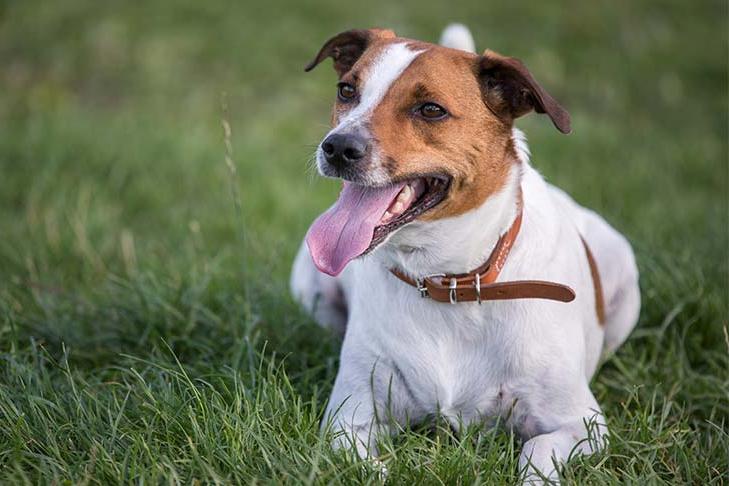
Typical Personality Traits
The Danish-Swedish Farmdog is a bundle of energy and friendliness. They’re known for being alert and versatile, always ready to jump into action. Their intelligence shines through in their quick learning and adaptability, making them a joy to train. These dogs are not just smart; they’re also incredibly affectionate, forming strong bonds with their families.
Suitability as a Family Pet and Working Dog
As a family pet, the Farmdog is a fantastic choice. Their friendly nature makes them great companions for both adults and kids. They’re also excellent working dogs, thanks to their agility and alertness. Whether it’s herding or simply being a loyal friend, they excel in both roles.
Interaction with Children and Other Animals
These dogs are wonderful with children, often matching their energy and enthusiasm. They play well with other animals too, making them a harmonious addition to multi-pet households. Their social nature ensures they get along with everyone.
Training and Exercise Needs
Training a Danish-Swedish Farmdog is usually straightforward due to their eagerness to please. They thrive on positive reinforcement and enjoy learning new tricks. Regular exercise is a must, as they have plenty of energy to burn. Daily walks, playtime, and mental stimulation keep them happy and healthy.
Training, Exercise, and Health
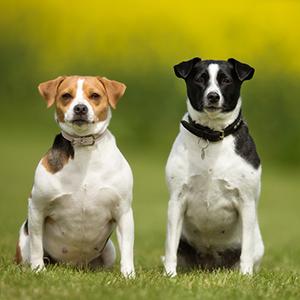
Importance of Early Training and Socialisation
Getting a head start on training and socialisation is crucial for the Danish-Swedish Farmdog. These dogs are naturally intelligent and eager to learn, so introducing them to various environments, people, and other animals early on helps them grow into well-rounded adults. This early exposure ensures they develop confidence and adaptability, making them a joy to have around.
Recommended Training Techniques
Positive reinforcement is the way to go with these dogs. They respond well to praise, treats, and play, making training sessions enjoyable for both you and your pup. Consistency is key, so regular short sessions work best. Incorporating fun activities like agility courses can also keep their minds sharp and engaged.
Daily Exercise Requirements and Activities They Enjoy
The Danish-Swedish Farmdog is an active breed that thrives on daily exercise. They love a good run in the park, a game of fetch, or even a challenging puzzle toy. Aim for at least an hour of physical activity each day to keep them happy and healthy. Mixing up their routine with different activities can prevent boredom and keep them mentally stimulated.
Health and Lifespan
Generally, this breed is robust and healthy, with a lifespan of around 12 to 15 years. Regular vet check-ups, a balanced diet, and plenty of exercise contribute to their longevity. Like all breeds, they can be prone to certain genetic conditions, so it’s wise to be aware of any health issues common in their lineage.
Health and Care for the Danish-Swedish Farmdog
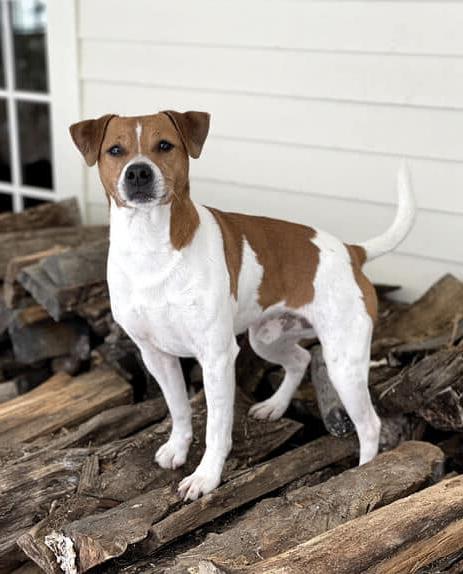
Common Health Issues
While generally healthy, the Danish-Swedish Farmdog can be prone to certain genetic conditions like hip dysplasia and patellar luxation. Regular vet visits are essential to catch any issues early. Keeping an eye on their weight and ensuring they get enough exercise can help prevent joint problems.
Average Lifespan and Health Tips
These dogs typically live between 12 to 15 years. To keep them healthy, provide a balanced diet rich in nutrients and ensure they get plenty of physical activity. Regular dental care and grooming also contribute to their overall well-being.
Preventative Care Recommendations
Preventative care is key. Regular vaccinations, flea and tick prevention, and routine health screenings are crucial. Early detection of potential health issues can make a significant difference in their quality of life.
Grooming and Maintenance
Their short, smooth coat is low-maintenance, requiring only occasional brushing to remove loose hair. Regular nail trimming, ear cleaning, and dental care should be part of their grooming routine. This not only keeps them looking their best but also supports their health.
Coat Care and Grooming Routines
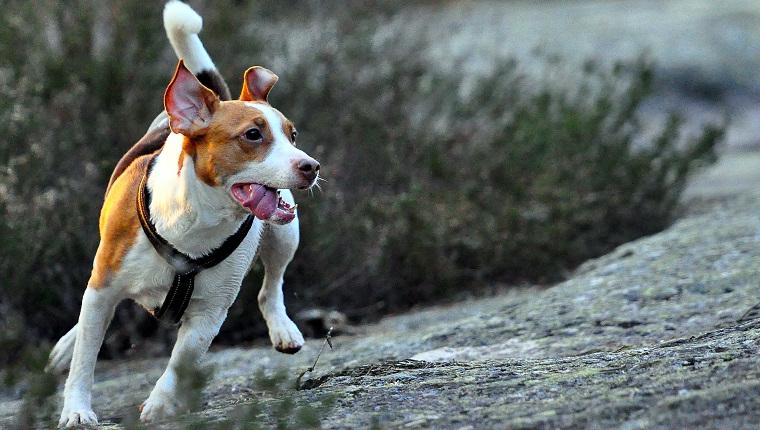
Shedding and Seasonal Grooming Tips
The Danish-Swedish Farmdog’s short, smooth coat is relatively easy to maintain. While they don’t shed excessively, regular brushing helps keep their coat healthy and reduces loose hair around the house. During seasonal changes, you might notice a bit more shedding, so a few extra brushing sessions can help manage this. A good quality brush designed for short-haired breeds will do the trick.
Bathing isn’t needed too often, just when they get particularly dirty or start to smell. Use a gentle dog shampoo to avoid skin irritation. Regular grooming sessions are a great opportunity to check for any skin issues or parasites.
Diet and Nutrition
A balanced diet is crucial for the health and vitality of your Danish-Swedish Farmdog. High-quality dog food that meets their nutritional needs is essential. Look for options rich in protein, healthy fats, and essential vitamins and minerals. Portion control is important to prevent obesity, which can lead to joint issues. Always ensure they have access to fresh water.
Some owners find that supplementing their diet with omega-3 fatty acids can help maintain a shiny coat and support joint health. Consult your vet for personalised dietary advice, especially if your dog has specific health concerns or dietary needs.
Nutritional Needs and Feeding Guidelines

Nutritional Needs for Optimal Health
Feeding your Danish-Swedish Farmdog a balanced diet is key to their health and happiness. Opt for high-quality dog food that provides a good mix of protein, fats, and essential nutrients. Protein supports muscle development, while healthy fats are crucial for energy and a shiny coat. Don’t forget those vitamins and minerals—they’re vital for overall well-being.
Foods to Include and Avoid
Include lean meats, fish, and vegetables in their diet. These provide essential nutrients and keep their energy levels up. Avoid foods high in fillers, artificial additives, and excessive grains, as these can lead to allergies or digestive issues. Always steer clear of chocolate, onions, and grapes, as these are toxic to dogs.
Feeding Schedules and Portion Recommendations
Stick to a regular feeding schedule to maintain their digestive health. Typically, two meals a day work well for adult dogs. Puppies may need more frequent, smaller meals. Portion sizes depend on their age, weight, and activity level, so consult your vet for tailored advice.
Fun Facts and Trivia
Did you know the Danish-Swedish Farmdog is sometimes called the “Little Big Dog” due to its small size but big personality? These dogs were once used to guard Viking ships, showcasing their bravery and loyalty. Their keen sense of smell also makes them excellent at tracking and hunting tasks.
Interesting Tidbits and Famous Danish-Swedish Farmdogs
Interesting Tidbits about the Breed
The Danish-Swedish Farmdog, often affectionately dubbed the “Little Big Dog,” is a breed full of surprises. Despite their compact size, these dogs have a rich history of versatility and bravery. They were once employed to guard Viking ships, a testament to their courage and loyalty. Their keen sense of smell and agility made them invaluable for tracking and hunting tasks, showcasing their multifaceted abilities.
Another fascinating aspect of this breed is their adaptability. Whether it’s herding livestock or simply being a family companion, they excel in various roles. Their intelligence and eagerness to please make them quick learners, often mastering new tricks with ease. This adaptability has made them a favourite among dog enthusiasts who appreciate a breed that can do it all.
Famous Danish-Swedish Farmdogs in Media or History
While the Danish-Swedish Farmdog may not be as widely recognised in mainstream media as some other breeds, they have made their mark in Scandinavian culture. These dogs have been featured in local folklore and stories, often depicted as loyal companions and protectors. Their historical role on farms and in households has cemented their status as a beloved breed in Denmark and Sweden.
In recent years, the breed has gained popularity in dog sports, particularly agility and obedience competitions. Their natural athleticism and intelligence make them standout performers, earning them accolades and admiration from dog lovers worldwide.
Final Thoughts
The Danish-Swedish Farmdog is a versatile and cherished breed. Its rich history and adaptability make it a beloved companion and efficient worker. Balancing high energy with intelligence, this breed thrives in active environments, offering both companionship and utility. Embracing a Danish-Swedish Farmdog means welcoming a piece of Scandinavian heritage into your home. Consider adopting one to experience the joy and loyalty this remarkable breed brings.
